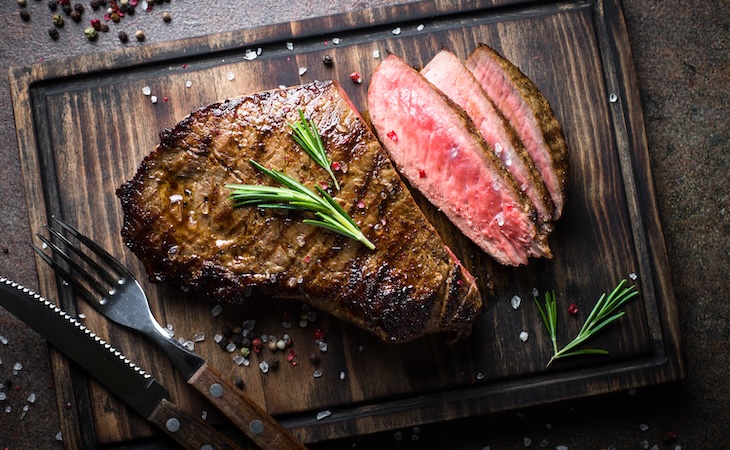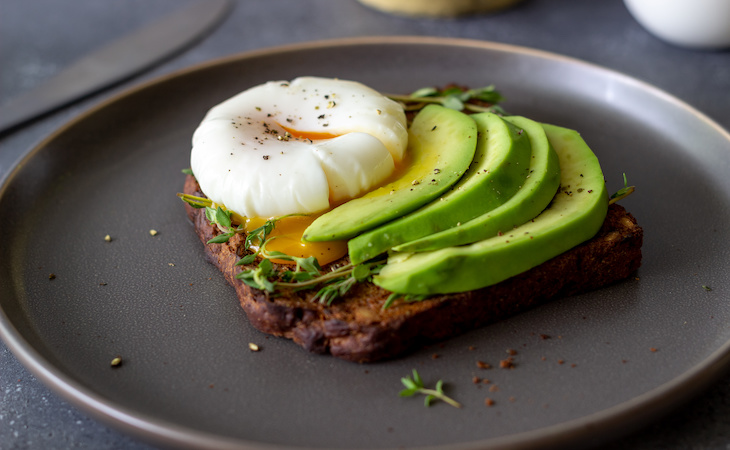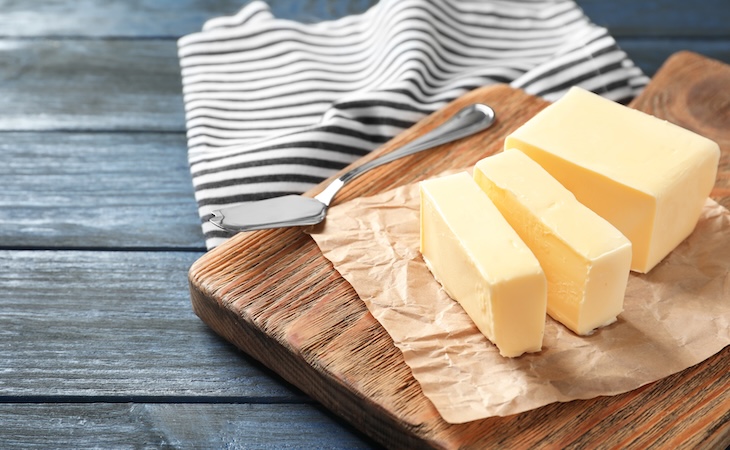The carnivore diet is getting a lot of attention these days. Proponents say it can help with weight loss, lower blood sugar in people with diabetes, and even improve mental health. [1] But here’s the catch: There’s little to no solid research to back up these claims.
Still, if you’ve embraced an all-meat lifestyle, or are just curious about it, you might be wondering, Does the carnivore diet improve sleep? Considering how diet can affect your sleep, it’s a question worth exploring. [2]
Let’s break down what we know (and don’t know) about the carnivore diet and its potential impact on catching those Z’s.
What is the carnivore diet?
The carnivore diet includes only animal-based foods like meat, fish, eggs, butter, and cheese. It completely cuts out plant-based foods, including fruits, vegetables, grains, nuts, and seeds. [3]
The carnivore diet is the most extreme form of keto because it has no carbs. It goes against standard nutrition guidelines, which recommend eating various foods. Because of this, many health experts don’t recommend it.
Supporters claim it helps with conditions like allergies, skin issues, or autoimmune diseases. [1] However, it has risks. Since fiber is only in plant foods, the diet lacks fiber, which can affect digestion. [4]
Plus, a low-fiber diet is linked to a higher rate of conditions like diabetes, cardiovascular disease, and colon cancer. [4] The carnivore diet may also lack other key nutrients, such as calcium if dairy is excluded and vitamin C since meat isn’t a good source. [1]
How does the carnivore diet affect sleep?
There are no scientific studies on how the carnivore diet affects sleep. However, research has looked at how protein impacts sleep.
Protein contains tryptophan, an amino acid that helps make serotonin and melatonin, which are important for sleep. Research shows that eating tryptophan may help people sleep longer. [5]
Tryptophan is found in many animal-based foods that fit in the carnivore diet like beef, fish, poultry, egg whites, and cheese. Keep in mind it’s also found in plant foods like soybeans, peanuts, and pumpkin seeds. [6, 7]
Studies also link higher-protein diets to better sleep quality, including more REM sleep, better sleep efficiency, and fewer nighttime awakenings. [8]
However, the type of protein matters. Research suggests eating more saturated fat is linked to poorer sleep, including less deep sleep and a longer time to fall asleep. [8]
Animal foods high in saturated fat include fatty meats and processed meats like bacon, sausage, steak, and poultry with skin—all of which might be part of a carnivore diet. [9]
The bottom line on the carnivore diet and sleep
There’s no research on how the carnivore diet affects sleep, but studies show protein and tryptophan may help. Most claims about its benefits are based on personal experiences, and what works for one person may not work for another.
You don’t need to cut out all carbs for better sleep. Research links diets high in fiber, fruits, vegetables, and anti-inflammatory nutrients and lower in saturated fat, like the Mediterranean diet, to better sleep quality. A balanced diet with a variety of foods and nutrients supports overall health, not just sleep.
FAQs
Can eating meat affect your sleep?
Yes, eating meat can affect your sleep. Protein-rich foods like meat contain tryptophan, which helps produce serotonin and melatonin, hormones that support sleep. However, the type and amount of meat, especially those high in saturated fat, can impact sleep quality.
What are the downsides of the carnivore diet?
The carnivore diet lacks fiber, which can affect digestion, and may lack essential nutrients like vitamin C and calcium. It can also be high in saturated fat, which can negatively impact heart health and sleep quality.
On the opposite end of the diet spectrum? Veganism. Here’s how a vegan diet affects your sleep.
References
- Lennerz, B. S., Mey, J. T., Henn, O. H., & Ludwig, D. S. (2021). Behavioral Characteristics and Self-Reported Health Status among 2029 Adults Consuming a “Carnivore Diet”. Current developments in nutrition, 5(12), nzab133. https://doi.org/10.1093/cdn/nzab133
- American Academy of Sleep Medicine: Sleep Education. Healthy Sleep Habits. https://sleepeducation.org/healthy-sleep/healthy-sleep-habits/
- Harvard Health Publishing: Harvard Medical School. What is the carnivore diet? health.harvard.edu/nutrition/what-is-the-carnivore-diet
- MedlinePlus. Fiber. https://medlineplus.gov/ency/article/002470.htm
- St-Onge, M. P., Cherta-Murillo, A., Darimont, C., Mantantzis, K., Martin, F. P., & Owen, L. (2023). The interrelationship between sleep, diet, and glucose metabolism. Sleep medicine reviews, 69, 101788. https://doi.org/10.1016/j.smrv.2023.101788
- MedlinePlus. Tryptophan. https://medlineplus.gov/ency/article/002332.htm
- My Food Data. Top 10 Foods Highest in Tryptophan. https://www.myfooddata.com/articles/high-tryptophan-foods.php
- Wilson, K., St-Onge, M. P., & Tasali, E. (2022). Diet Composition and Objectively Assessed Sleep Quality: A Narrative Review. Journal of the Academy of Nutrition and Dietetics, 122(6), 1182–1195. https://doi.org/10.1016/j.jand.2022.01.007
- MedlinePlus. Facts about saturated fats. https://medlineplus.gov/ency/patientinstructions/000838.htm




